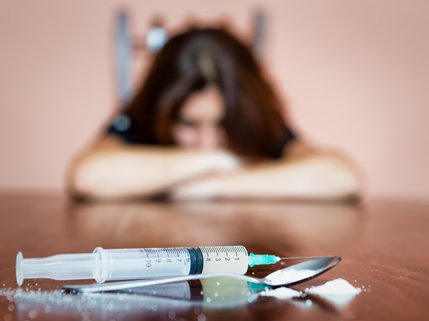
Once you get clean, your biggest concern is finding ways to stay that way.
Relapses are a return to heavy use of alcohol or drugs after a period of abstinence or moderate use. They are obviously left best avoided, and the best way to do that is by understanding that relapse is a process, not an event.
Someone doesn’t just relapse one day; they go through an emotional, mental, and then physical relapse. The physical relapse is the most dangerous, but the process starts when a patient begins to emotionally relapse.
At Alpine Recovery Lodge, we place a strong emphasis on helping you understand the anatomy of a relapse and put measures in place that help you prevent it. We want you to understand how specific techniques can make a relapse much less likely.
When you begin to emotionally relapse, you aren’t thinking about using, but are having emotionally unhealthy thoughts that will put you in a place vulnerable enough to make you want to use.
During this time, the emotions you feel might be a mix of anger, anxiety, and isolation. What starts off as a bit of defensiveness elevates to you being unwilling to go to meetings or ask for help.
 The true issue with emotional relapse is it’s much the same as post-acute withdrawal – you’re feeling these feelings as part of an emotional adjustment to life without drugs or alcohol.
The true issue with emotional relapse is it’s much the same as post-acute withdrawal – you’re feeling these feelings as part of an emotional adjustment to life without drugs or alcohol.
The most important part of this early stage of relapse is understanding it. If you know what to look for in yourself and see those things, you are more likely to be able to pull back early and save yourself the torment of a full relapse.
There are two parts to avoiding emotional relapse. Once you understand what’s going on, you need to both pre-emptively practice self-care, and use rationality to correct your behaviors.
Self-care is the act of building a healthy sleep, exercise, and diet practice as well as being around people that are a good influence. If you do these things, it won’t be as tempting to relapse.
Rationality can help you identify what you’re doing that is unhealthy and correct it. By honestly assessing yourself to see if you’re being isolationist, you can take countermeasures to correct your behavior before it elevates to a more dangerous place.
The mental relapse phase is where things get more dangerous, and you actually start picturing using. Your mind wanders from idle thoughts of using to full out fantasies of it.
As the saying goes, positive visualization gets you to that place, and that’s just as relevant to negative visualization. As soon as you start picturing relapsing, you need to find a way to stop yourself from taking it any further.
This can mean one of a few things. You could think rationally about the whole situation, and remind yourself that you couldn’t handle using in the first place, and shouldn’t expect it to be any different this time.
In fact, we’ve seen a lot of patients at Alpine Recovery Lodge who thought they could go back to mild use without it being a problem, and that is never the answer. If you couldn’t do it the first time, you won’t be able to do it this time.
The next thing to think about is your responsibility to your friends and family to stay clean. They are rooting for you just as much as you are rooting for you and you owe it to them to do everything you can to make sure you don’t relapse.
If it helps, talk to your family and friends about the urges you’re feeling. They will happily help you through this tough time if it shows how hard you are trying.
The next two steps are closer to the self-care aspect of recovery.
First, you could easily just go for a walk to get thoughts of using out of your system. Having a cool down period applies to everything from fights with your spouse to making a big decision – this definitely fits in.
If gentle distraction by means of a walk or watching some television doesn’t help, take up meditation. The act of relaxing and sitting with your thoughts will help you find more clarity. Since stress is one of the components of emotional relapse, fighting it with relaxation is a very valid strategy.
Once you reach physical relapse, you’re at a point where your body is fully craving usage, and it’s very hard to fight. Being abstinent by means of brute force isn’t sustainable.
Once you reach this point, you need to take immediate actions to alleviate the problems that have pushed you through the emotional and mental relapse stages. At Alpine Recovery Lodge, we have the knowledge, know-how, staff, and facilities to help you through each stage of relapse.
